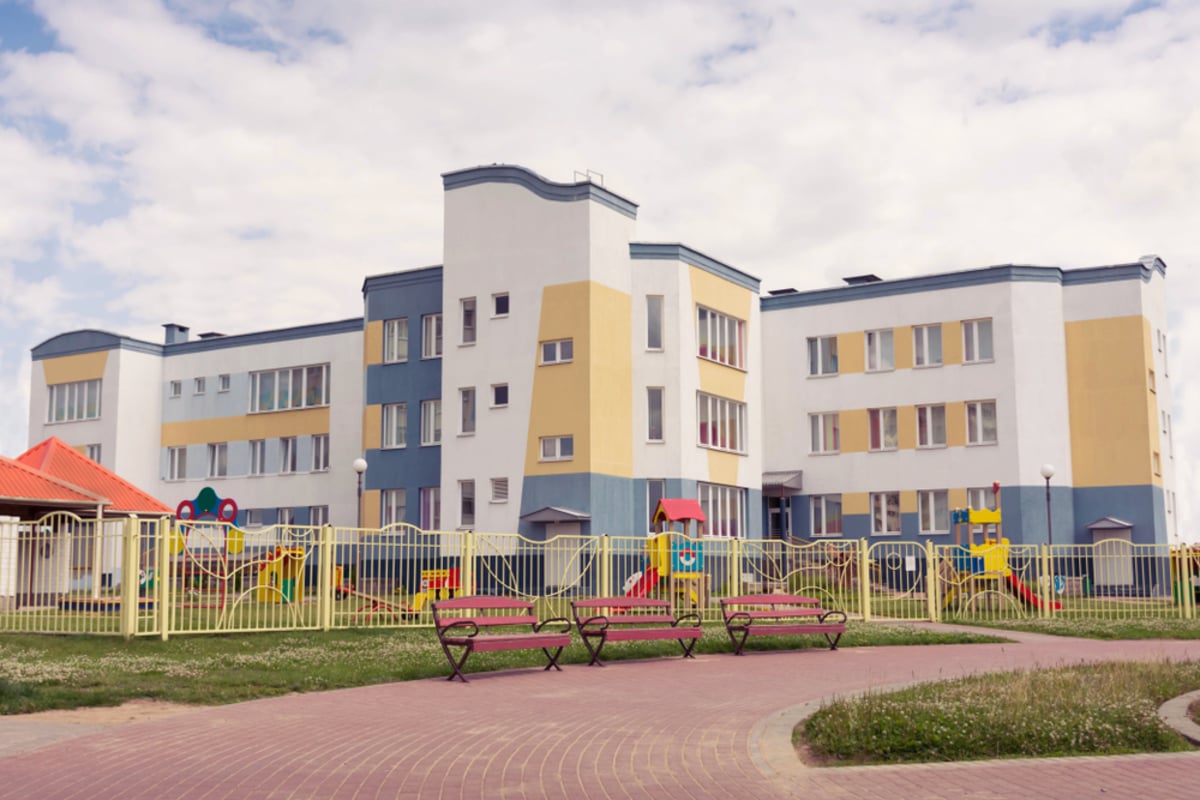Five Considerations Before Buying a Property Near a School
Like any investment, buying a property near a school comes with a unique set of positives and negatives. Use the following topics to weigh up an informed decision through rental analysis to determine if the property is a good investment for you.

1. The Cost of Living
The question of the cost of living is a tricky one when weighing whether or not to purchase a property near a school.
The cost of living can certainly be lower in some college and school neighborhoods, making it an attractive option for potential residents. In addition, accommodation costs are often cheaper than living on campus for young students of college age, and lower accommodation costs generally mean lower residential property prices.
For example, purchasing a property in a college zone may give you access to a vast renter pool, making it easier to fill the space, the tradeoff being that amount of rent that you charge may be lower than in some other areas. Alternatively, properties in zones with good schools may incur a higher cost of living and can be some of the more expensive areas in the country, giving you a smaller potential resident pool to choose from.
2. The Impact of Noise Pollution
As a rental property owner, attracting quality tenants is one key component of a successful investment. Of course, the property itself is important, but the surrounding environment can also be a determining factor.
There can be more than average noise around properties near schools, from the school bell to kids playing, significant events, and after-school activities. Keep in mind that certain times of the day, such as drop off and pick up, might create a noisier environment, and not every potential tenant may be comfortable with this.
A great way to offset this is to get out there and meet some of the residents and tell them you're interested in the area and how they find the noise to be during these peak hour times. A property manager can also give insights into how school noise pollution could impact potential returns.
3. Increased Traffic at Specific Times
Traffic can be a big issue for rental properties located near schools. With higher traffic rates at peak times during the day, this can impact everything from a renter's commute to work to parking options for potential tenants.
Not just cars but also buses and even foot traffic can be frustrating for potential residents of your property. Keep this in mind when investing in real estate in a property near a school.
However, if you're targeting younger families as potential residents of your property, increased traffic may not have such a detrimental impact. Living close to the school (even with increased traffic) can be a positive as children and parents can walk to the school, avoiding the traffic altogether.
4. Access to Community and Additional Amenities
School zones generally have quality parks and recreational areas either within the school property or nearby. In addition, amenities such as basketball courts, running tracks, and playgrounds are usually available after school hours. As a result, they can be an attractive selling point for potential tenants with young families looking for accessible and familiar recreational resources.

Following this, the community and law enforcement generally watch school zones more closely, making it a safer all-round, and pleasant environment.
5. Impact on Property Value
As the adage goes, location, location, location—which is perhaps also the unofficial number one rule of real estate investing. Because of this, homes near ''good'' schools can see a positive increase in the property's value, whereas homes near ''bad'' schools can see the reverse.
In fact, school zones can seriously impact property value prices. However, determining the good vs. bad can be tricky. One way is to go through agencies and property managers who know the area well.
Recent data indicates that areas with good school attendance positively correlate with higher property value as they are linked to lower unemployment and access to goods and services. So this may be a great starting point. In addition, there are plenty of resources out there for parents of school-aged children, which can also be leveraged by property investors looking to invest in a school zone and after some more in-depth information.
Property Management Bonus Tips When Researching a Rental Property
What else can help investors determine if a residential property near a school is a good addition to an investment portfolio? Tacoma property managers recommend:
- Putting yourself in the shoes of a renter—consider different renting personas and how they would react to the pros and cons we've mentioned today.
- Once the property has been purchased, create a listing that appeals to families with school-aged kids and dual-income parents, as this could lead to long-term leases with excellent residents.
- Researching the performance of the school.
- Use a resource like the best property management Tacoma offers.
A property manager can help you with information beyond what you can find through online resources to help you find a rental property that generates the returns you need!
Is Investing in Real Estate Near Schools Right For You?
Whether you're after a new rental property to add to your portfolio or a first-time investor testing the water, investing in property near a school has advantages and disadvantages.
Thorough research and due diligence are fundamental in this process. The Joseph Group helps rental property owners find the best properties to maximize their returns! Contact us today to learn more about how you can find property gems to meet your goals!



